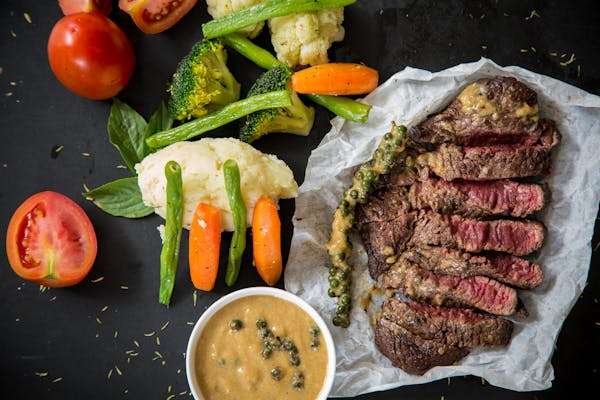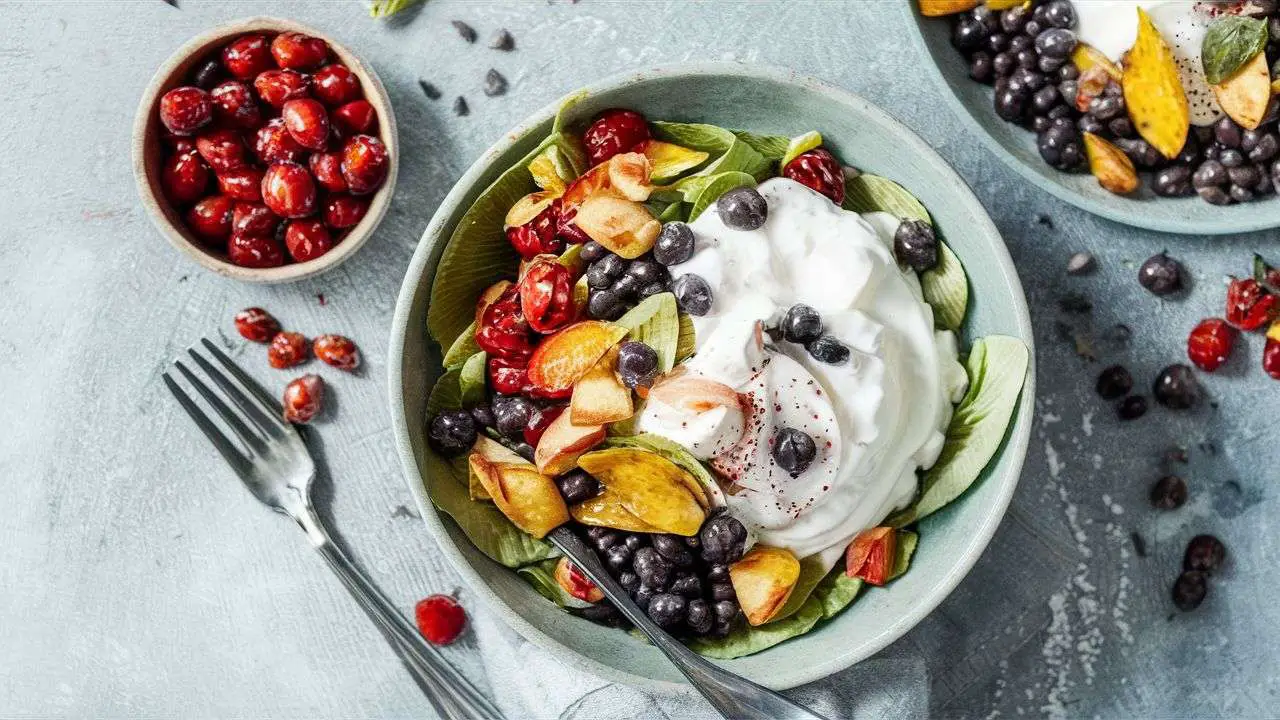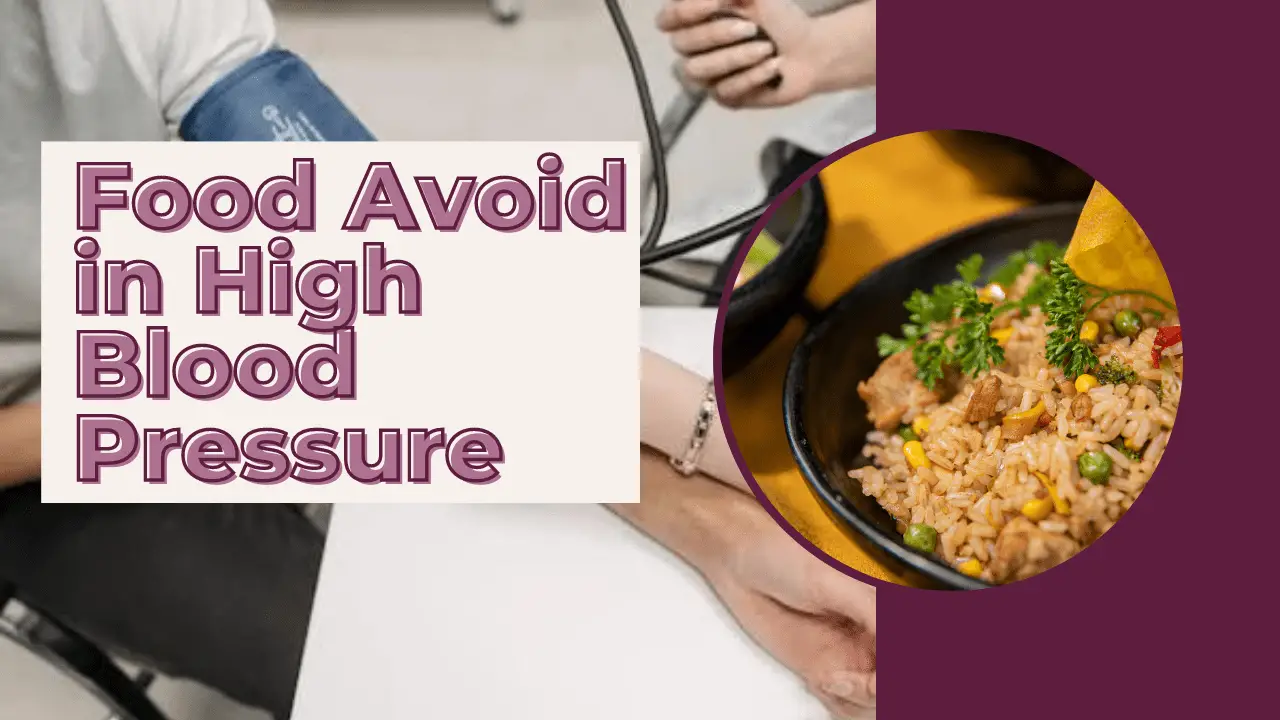During pregnancy, maintaining a healthy diet is crucial, especially when managing conditions like high blood pressure. One of the key strategies for ensuring maternal well-being is understanding which foods to avoid when pregnant with high blood pressure.
Blood pressure regulation is greatly influenced by diet, which affects both the health of the mother and the growth of the fetus. Expectant moms can reduce their risk of hypertension during pregnancy by making educated decisions and abstaining from specific foods.

This article examines important dietary factors and focuses on particular items that should be avoided or closely watched to support a healthier pregnancy.
High Blood Pressure During Pregnancy:
High blood pressure, also known as hypertension, can develop during pregnancy, posing potential risks to both mother and baby. Here’s a breakdown of this condition:
- Types: There are two main categories:
- Gestational hypertension: This develops after 20 weeks of pregnancy, typically with no other symptoms. It usually resolves after delivery but increases the risk of future high blood pressure.
- Preeclampsia: A more serious condition, preeclampsia involves high blood pressure alongside signs of organ damage, often indicated by protein in the urine.
- Risks: Uncontrolled high blood pressure can lead to:
- Placental abruption: Detachment of the placenta from the uterus, hindering oxygen and nutrient supply to the baby.
- Poor fetal growth: Lack of proper nourishment can affect the baby’s development.
- Preterm birth: Delivery before 37 weeks, potentially leading to health complications for the baby.
- Organ damage: In severe cases, the mother’s kidneys, liver, and brain can be affected.
- Foods to Avoid: Maintaining a healthy diet is crucial. While a specific list needs to be discussed with your doctor, some general recommendations include limiting processed foods, added salt, and saturated fats.

Early detection and proper management through prenatal care are essential. By understanding high blood pressure during pregnancy and making necessary lifestyle adjustments, you can significantly improve the health outcomes for yourself and your baby.
Foods to Avoid When Pregnant with High Blood Pressure:
Managing your diet is a key part of controlling high blood pressure during pregnancy. Here’s a closer look at foods to limit:

- High-Sodium Foods: Sodium, the main component of table salt, causes your body to retain water, raising blood pressure. Processed foods, canned goods, cured meats (bacon, sausage), and salty snacks are major culprits. Aim for fresh ingredients and cook at home whenever possible.
- Added Sugars: Sugary drinks, desserts, and processed snacks can contribute to weight gain, which can worsen high blood pressure. Fructose, a common type of sugar, may also increase salt absorption and affect blood pressure regulation.
- Saturated and Trans Fats: Found in fatty cuts of meat, fried foods, and processed snacks, these fats can increase your risk of heart disease and potentially contribute to high blood pressure. Opt for lean protein sources like fish, poultry, and legumes, and choose healthy fats from sources like olive oil and avocados.
Remember, these are general recommendations. Consult your doctor for a personalized plan that considers your specific needs and preferences. They can help you create a balanced and nutritious diet that supports both your health and your baby’s development.
Why These Foods Are Problematic:
Understanding why certain foods should be avoided during pregnancy, especially when dealing with high blood pressure, is crucial for maintaining maternal and fetal health. These foods can exacerbate hypertension and increase the risk of complications.

- High-Sodium Foods: Excess sodium intake can lead to fluid retention, putting strain on the heart and blood vessels. This can result in increased blood pressure levels, which may lead to conditions like preeclampsia—a serious pregnancy complication characterized by high blood pressure and organ damage.
- High-Sugar Foods: Consuming foods high in sugar can lead to weight gain and insulin resistance, which are risk factors for developing gestational diabetes and hypertension during pregnancy. Elevated blood sugar levels can also contribute to inflammation and arterial damage, affecting blood pressure regulation.
- Trans Fats: Trans fats raise levels of bad cholesterol (LDL) while lowering levels of good cholesterol (HDL). This imbalance can contribute to arterial plaque buildup, narrowing blood vessels, and increasing blood pressure. Pregnant women with hypertension are particularly vulnerable to these cardiovascular risks.
- Caffeine: Excessive caffeine consumption can temporarily elevate blood pressure by stimulating the nervous system and increasing heart rate. In pregnant women with hypertension, this can potentially worsen blood pressure control and increase the risk of complications.
- Alcohol: Alcohol consumption during pregnancy is associated with a range of adverse outcomes, including increased blood pressure. Alcohol crosses the placenta and can affect fetal development, leading to growth restrictions and other health issues.
By avoiding these problematic foods and opting for a balanced diet rich in fruits, vegetables, lean proteins, and whole grains, pregnant women can better manage their blood pressure and support a healthy pregnancy. Regular prenatal care and consultation with healthcare providers are essential for monitoring blood pressure and addressing any concerns promptly.
Healthy Alternatives:
Finding healthy alternatives to foods to avoid during pregnancy with high blood pressure is essential for maintaining overall health and supporting optimal blood pressure levels.
- Low-Sodium Options: Instead of processed foods high in sodium, choose fresh or frozen fruits and vegetables, which are naturally low in sodium. Opt for homemade meals using herbs and spices for flavor instead of salt. Look for low-sodium versions of canned goods and sauces.
- Natural Sweeteners: Replace sugary drinks and desserts with healthier alternatives. Drink water, herbal teas, or infuse water with fruits like lemon or cucumber for flavor. Choose snacks like fresh fruits, yogurt with berries, or homemade smoothies with natural sweeteners like honey or maple syrup.
- Healthy Fats: Instead of trans fats found in fried and processed foods, opt for foods rich in healthy fats like avocados, nuts, seeds, and olive oil. These fats support heart health and may help lower blood pressure.
- Caffeine Alternatives: Limit caffeine intake by choosing decaffeinated coffee or herbal teas. Herbal teas like chamomile or peppermint are caffeine-free and can be soothing alternatives.
- Hydration: Drink plenty of water throughout the day to stay hydrated, which supports overall health and can help regulate blood pressure.
Pregnant women can maintain a balanced diet that supports their blood pressure objectives and provides vital nutrients for the health of both the mother and the fetus by adopting these healthful choices
It’s crucial to talk about dietary adjustments with a healthcare professional to make sure they support your pregnancy objectives and unique health demands. To effectively manage hypertension during pregnancy, routine prenatal care and blood pressure monitoring are essential.
Conclusion:
In summary, making educated food decisions is essential to controlling high blood pressure during pregnancy. Limiting consumption of foods heavy in alcohol, caffeine, trans fats, sugar, and sodium can help control blood pressure and encourage a healthier pregnancy.
Rather, choosing nutrient-dense substitutes guarantees the health of the mother as well as the development of the fetus. Expectant moms can confidently navigate their pregnancy journey by prioritizing a balanced diet and seeking tailored assistance from healthcare specialists.
They can also focus on foods to avoid when pregnant with high blood pressure for the best possible health outcomes.
FAQs:
1: Which foods should I avoid to manage high blood pressure during pregnancy?
Answer: Avoid high-sodium foods like processed snacks and canned soups, sugary drinks, and desserts, trans fats found in fried foods, excess caffeine, and alcohol.
2: Can I still have coffee during pregnancy if I have high blood pressure?
Answer: Limit caffeine intake to less than 200 mg per day, equivalent to about one 12-ounce cup of coffee, and consider switching to decaffeinated options.
3: How do these foods impact my blood pressure during pregnancy?
Answer: High-sodium, sugary, and trans-fat-rich foods can increase blood pressure and contribute to complications like preeclampsia, affecting maternal and fetal health.
4: What are some healthy alternatives to these foods?
Answer: Opt for fresh fruits and vegetables, lean proteins, whole grains, and healthy fats like avocados and nuts. Use herbs and natural sweeteners for flavor.
5: Why is it important to avoid alcohol during pregnancy if I have high blood pressure?
Answer: Alcohol can raise blood pressure levels and pose risks to fetal development, making it crucial to abstain from alcohol throughout pregnancy for maternal and fetal well-being.
